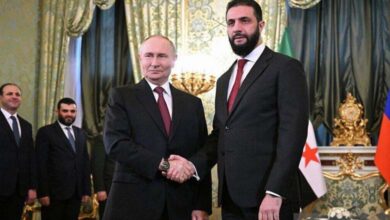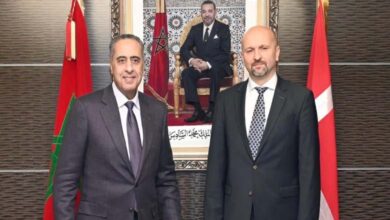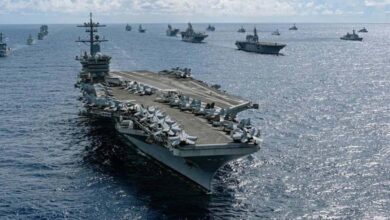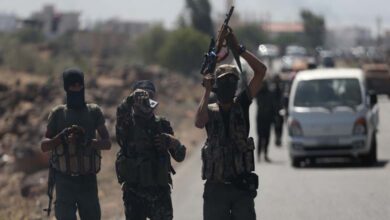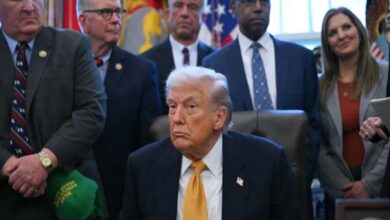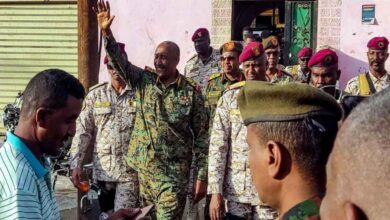Challenges Facing al-Charaa’s Administration and Ways to overcome “a Complex Phase”
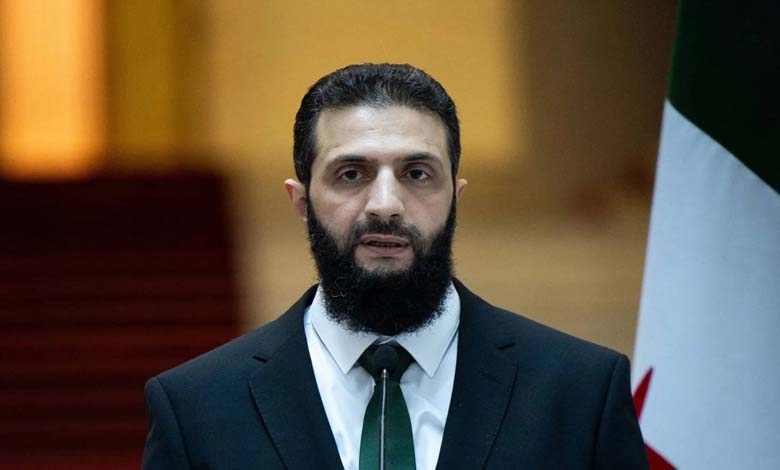
In a pivotal move in modern Syrian history, the new administration led by Ahmad al-Charaa continues to open channels of communication with various Syrian factions and communities in an effort to bridge divisions and achieve the desired political change.
-
Erdogan gives Syrian Kurds the choice between laying down arms or death
-
Armed factions have become a key player in the Syrian landscape – Details
These efforts are part of preparations for an inclusive national conference, which many view as an opportunity to rebuild Syria on new, comprehensive foundations.
Trust and Inclusive Dialogue
Political analyst Houssam Taleb emphasized the importance of self-confidence within the new leadership, noting that press freedom, once a distant dream, is now on the horizon.
He stressed that the national dialogue must be inclusive and exclude no one, highlighting that the preparatory committee, carefully selected from prominent academics, reflects a diversity of opinions and backgrounds.
-
More than 7,000 Syrians in Jordan return to their country after al-Assad’s fall
-
“Al-Joulani’s Plans”: Abolishing Mandatory Military Service and Undermining Syrian Kurds
He stated, “The presence of such a skilled preparatory committee demonstrates the administration’s seriousness in organizing a national conference for everyone.”
Challenges and Obstacles
Despite the optimism surrounding the ongoing dialogue, journalist Hanna Houshan pointed out the challenges the new administration faces, particularly given Syria’s social and sectarian diversity.
He underscored the importance of transparency in the upcoming conference, warning that ignoring international criticism could weaken the dialogue’s credibility.
-
Landmines and Unexploded Ordnance: Obstacles to Syrians Returning Home
-
Hama Countryside: Massive Syrian Army Reinforcements and “Mass Fleeing” of Militants
He added, “The desired change requires time and patience, especially given the current complexities.”
Houshan also noted fears among some groups that the changes might lead to the dominance of a specific faction, contradicting Syria’s diverse societal makeup.
He viewed Ahmad al-Charaa’s statements rejecting sectarianism and power-sharing based on quotas as a step in the right direction.
-
Latest Developments on the Syrian Scene
-
Aleppo Clashes: Syrian Army “Cleanses” Several Areas and Prepares for a Counterattack
The Kurds and Their Role in the Next Phase
Kurdish researcher Tarek Hamo focused on the importance of building strong relationships among Syria’s communities without classifying them as minorities.
He asserted that the Kurds, who were marginalized under the previous regime, must have their national rights acknowledged.
Hamo praised the positive dialogue initiated between the autonomous administration and the central government in Damascus, describing it as a “purely Syrian dialogue” that could serve as a basis for addressing internal issues.
-
Meager Salaries and Stark Discrimination: Why Are Syrians Defecting from Iranian Militias?
-
Betrayal and Corruption Plague Syrian Opposition Army
He also highlighted that the autonomous administration in northeast Syria, comprising multiple communities, played a pivotal role in combating ISIS. The new administration could leverage this experience to strengthen Syria’s overall position.
He stated, “Cooperation with the autonomous administration is not an option but a necessity to ensure the success of the national dialogue.”
-
SDF Fights Syrian Army, Calls on Coalition to Combat ISIS
-
Restrictions on Syrian refugees for deportation from Turkey
A Vision for Syria’s Future
The three analysts agree that the next phase requires a broad internal dialogue based on respect for Syria’s social, cultural, and political diversity.
They believe that establishing a geographically decentralized system could be the most appropriate solution for maintaining the country’s unity and cohesion.
They also emphasized the principle of the sanctity of Syrian blood, asserting that continuing the national dialogue is the only way out of the crisis.




